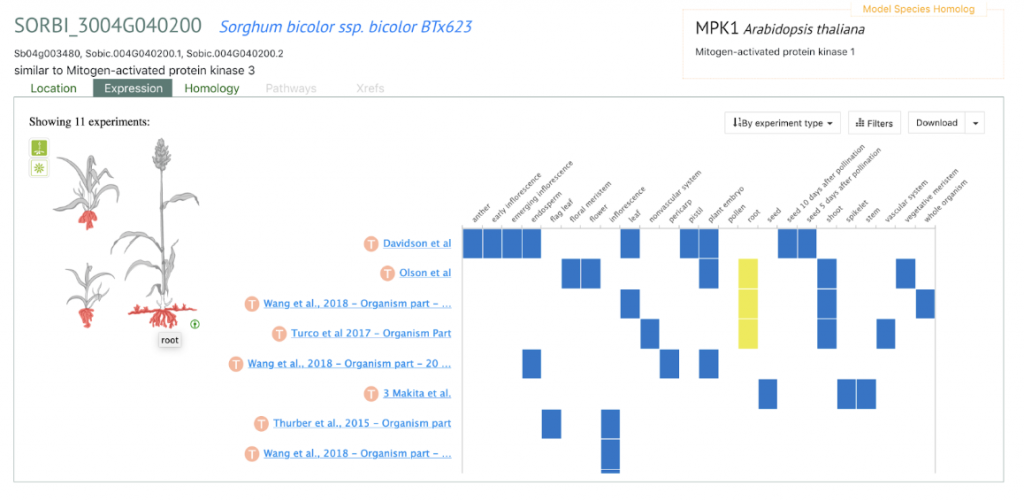Analysis of MAPK cascade Genes Indicates Possible Gene Pathways for Water Stress Regulation
Drought is an environmental stress that greatly affects agricultural production. Sorghum plants, and indeed plants in general, transmit stress signals to regulate their cellular processes and try to mitigate the effects of water scarcity. A better understanding of genes involved in these stress reactions will inform selection for traits to produce cultivars with improved drought tolerance and is of great interest to biologists, breeders, and growers.
To study the response of sorghum to drought researchers at Maize Research Institute, Beijing Academy of Agriculture & Forestry Sciences, Beijing Key Laboratory of Maize DNA Fingerprinting and Molecular Breeding, and Jiangxi Agricultural University studied mitogen-activated protein kinase (MAPK) cascade genes, which play an important role in stress tolerance in plants, in sorghum. They conducted the first genome-wide analysis of MARKK and MAPKK genes in sorghum. Through computational analysis, eight MAPKKs and 49 MAPKKKs were identified and classified into sub-families. One MAPK, one MAPKK, and eight MAPKKKs were expressed differently under water stress. qRT-PCR analysis revealed that in five drought-stressed inbred lines’ leaves SbMAPKKK39, SbMAPKKK47, and SbMAPKKK50 were significantly up-regulated. In addition, in all inbred lines except one SbMPK14 was significantly up-regulated. The researchers hypothesize that SbMPK14, SbMAPKKK39, and SbMAPKKK47 are critical genes in water stress tolerance in sorghum.
The researchers further explored SbMPK14, which is a group C MAPK gene. Group C MAPK genes are known to be involved in abiotic stress responses. SbMPK14 overexpressing plants were investigated under water stress and a negative correlation between gene expression and drought tolerance indicated a negative regulatory mechanism. The study showed that the group C MAPK gene in sorghum reduced drought tolerance. In SbMPK14 overexpressing transgenic maize plants, RNA-seq and qRT-PCR data showed that ERF, WRKY, and other related genes were down regulated under moderate water stress conditions indicating a possible mechanism by which SbMPK14 regulates drought sensitivity.
SorghumBase example

Reference
Zhou M, Zhao B, Li H, Ren W, Zhang Q, Liu Y, Zhao J. Comprehensive analysis of MAPK cascade genes in sorghum (Sorghum bicolor L.) reveals SbMPK14 as a potential target for drought sensitivity regulation. Genomics. 2022 Mar;114(2):110311. PMID: 35176445. DOI: 10.1016/j.ygeno.2022.110311. Read More

